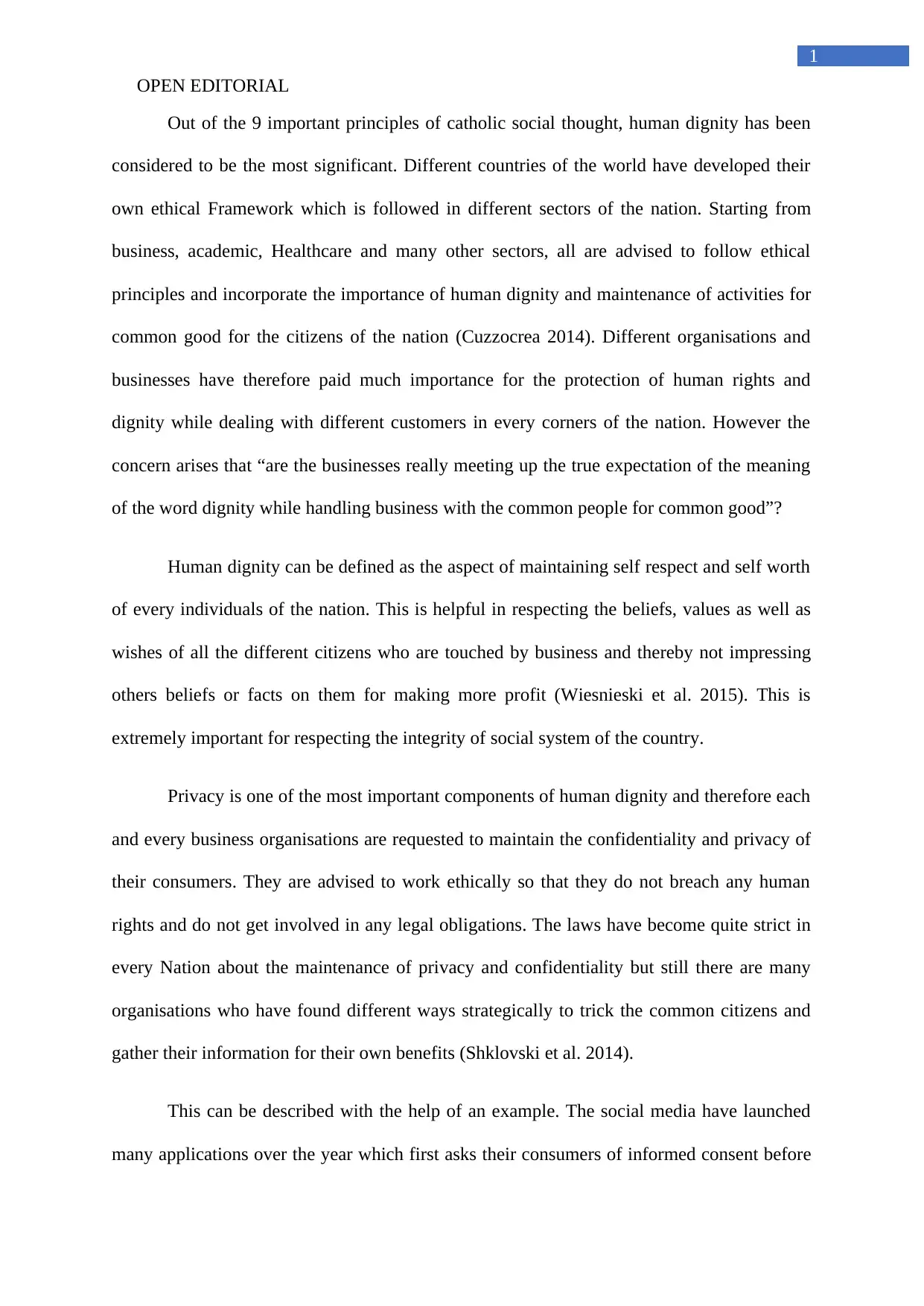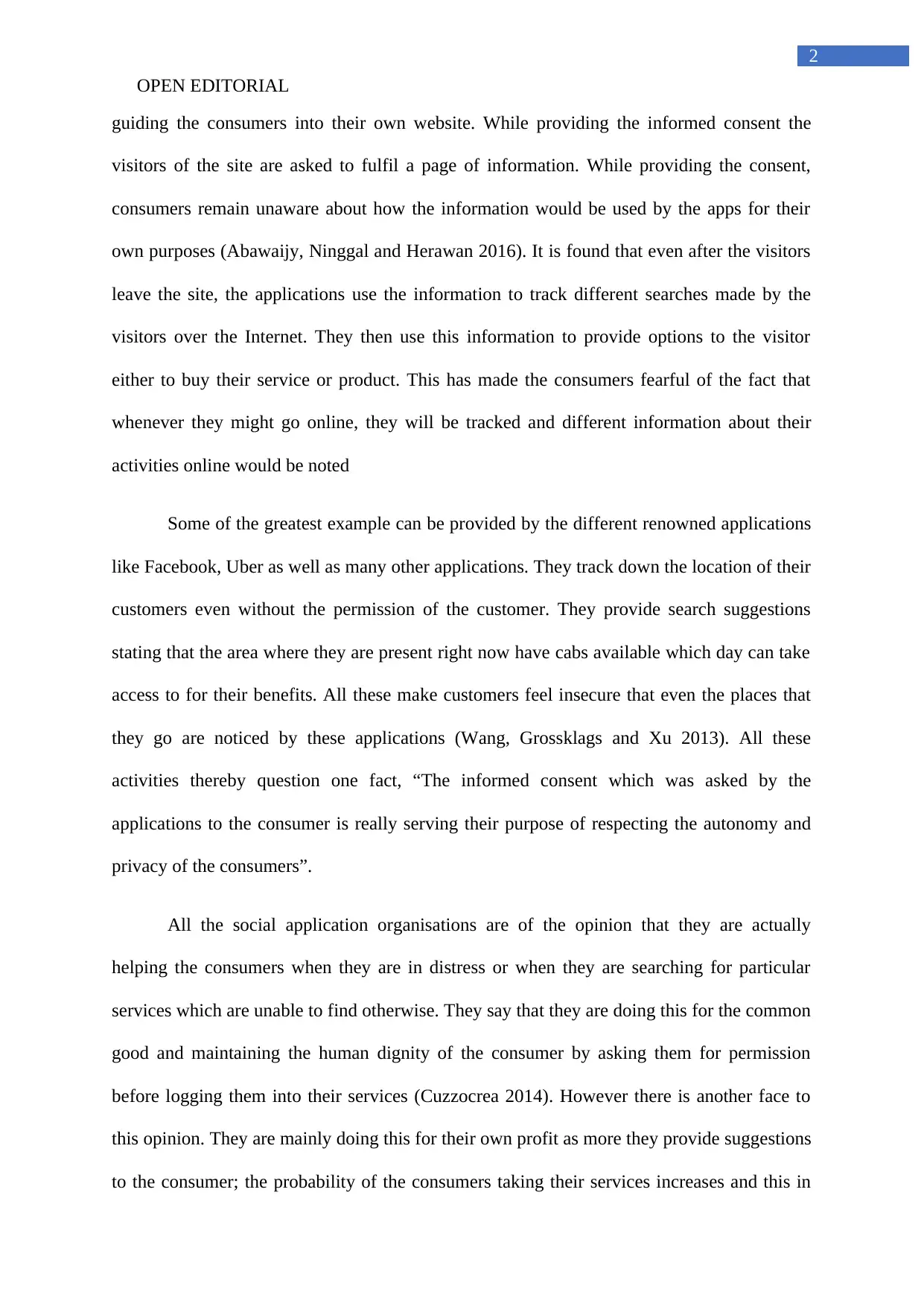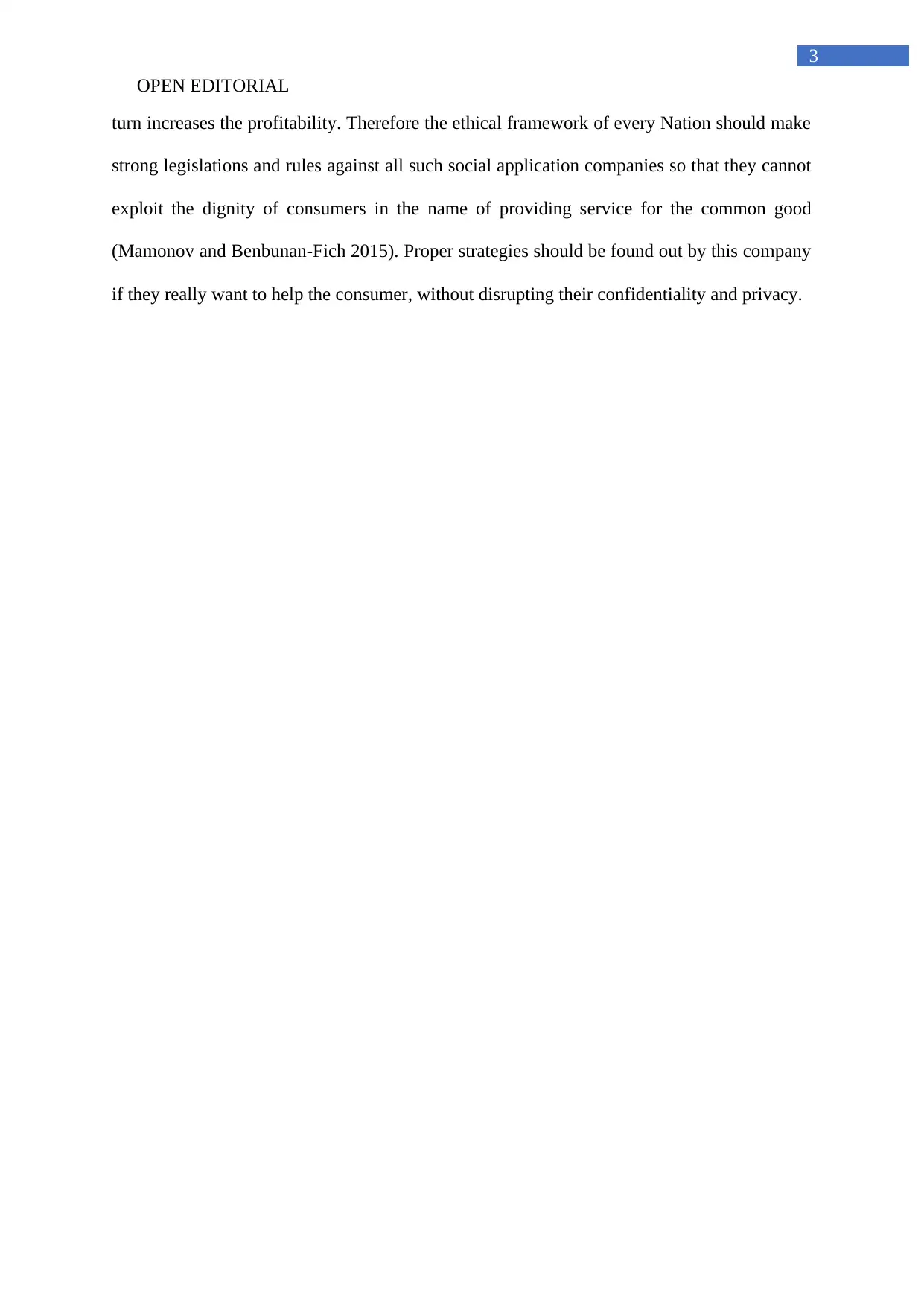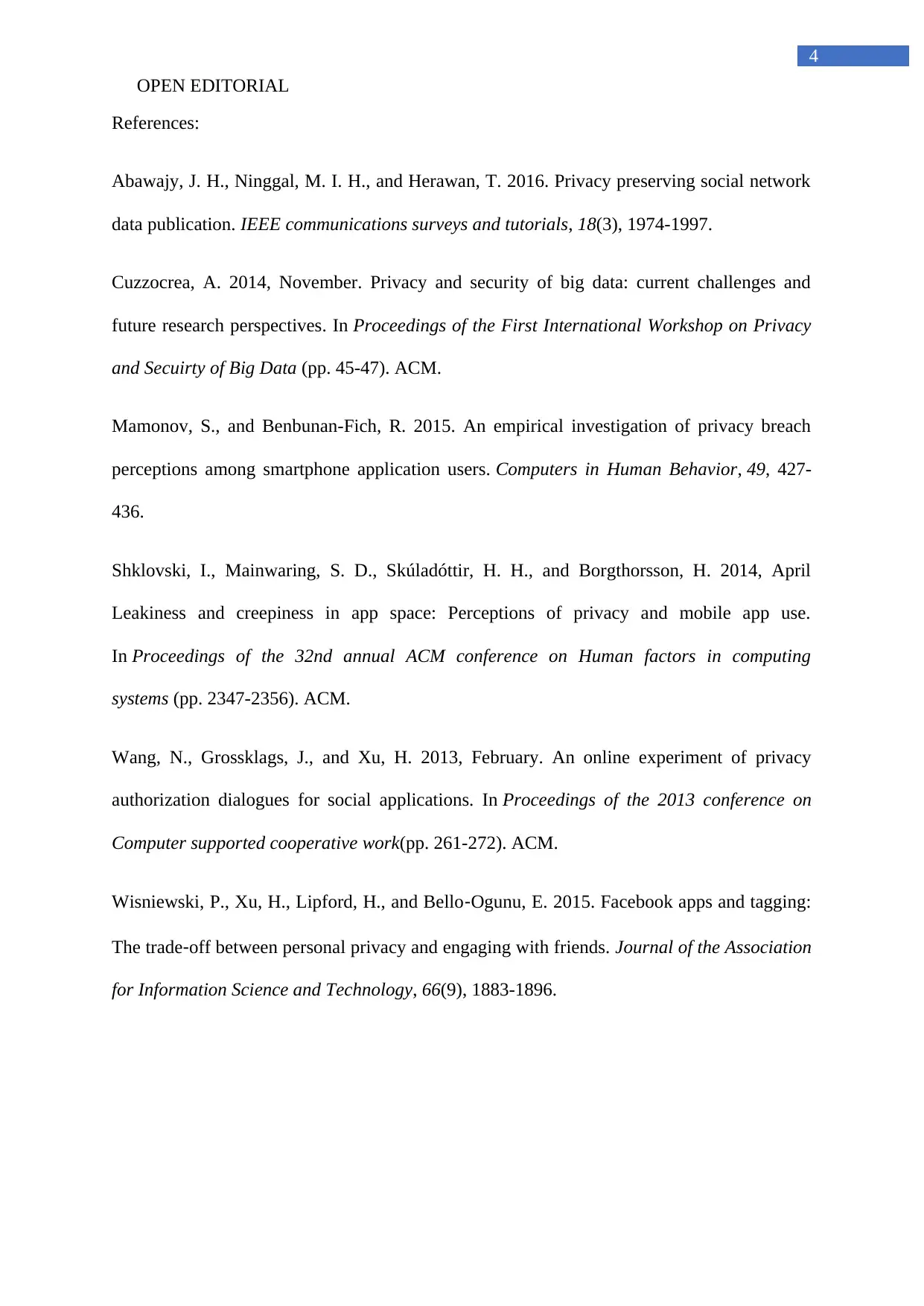Open Editorial: Ethical Considerations of Human Dignity in Business
VerifiedAdded on 2020/05/08
|5
|1110
|147
Essay
AI Summary
This essay, titled "Open Editorial," examines the critical role of human dignity in contemporary business practices. It begins by establishing human dignity as a cornerstone of Catholic social thought and highlights the ethical frameworks developed globally to protect individual rights across various sectors, including business, healthcare, and academics. The essay raises a central question: whether businesses truly uphold the meaning of human dignity when interacting with consumers. It defines human dignity as the preservation of self-respect and worth, emphasizing the importance of respecting beliefs, values, and privacy. The essay discusses privacy as a key component of human dignity, and how businesses, particularly social media applications, often exploit user data through practices like tracking and targeted advertising, despite asking for informed consent. The author provides examples of applications like Facebook and Uber, which track customer locations, potentially violating privacy. The essay concludes by questioning the authenticity of informed consent and calls for stricter regulations to protect consumer dignity and privacy, advocating for ethical business strategies that prioritize consumer confidentiality and well-being.
1 out of 5












![[object Object]](/_next/static/media/star-bottom.7253800d.svg)